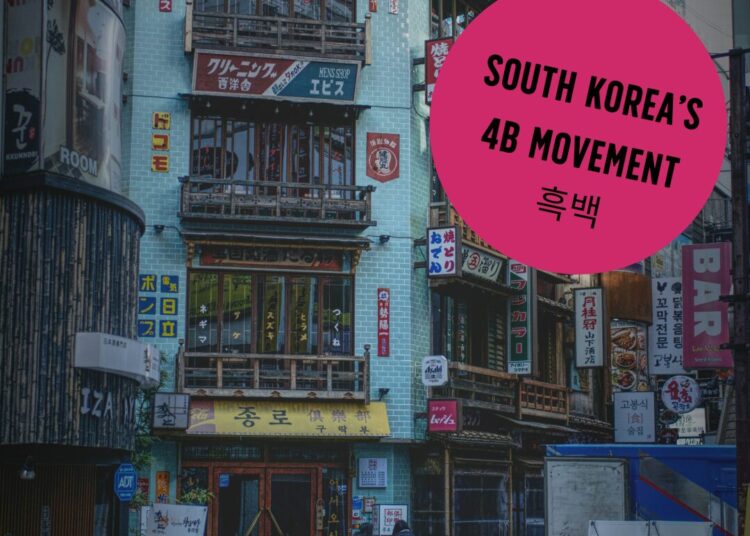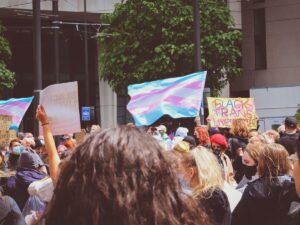Marriage, childbirth and relationships are supposed to be happy, fun and safe moments of your life. But if they are the opposite, why bother?
Who are they?
South Korea is dominated by a patriarchal society, where women are traditionally expected to defer to their fathers and conform to rigid beauty standards. In response to these societal norms, a radical feminist movement has emerged known as the 4B movement.
The term 4B refers to four Korean words, each beginning with “bi” (meaning “no” in Korean) and representing the rejection of aspects of its patriarchal society. They are Bihon (the refusal of heterosexual marriage), Bichulsan (the refusal of childbirth), Biyeonae (the refusal of dating) and Bisekseu (the refusal of heterosexual sexual relationships).
The 4B movement embodies both an ideological stance and a lifestyle choice. Women choose to distance themselves from all male relationships, including platonic friendships. This is because 4B feminists view Korean men as irredeemable due to the deeply entrenched patriarchal culture. While they strive to affect societal change, their focus lies not in trying to reform men but rather in rejecting patriarchal structures altogether.
By refusing to be instrumentalised for their reproductive capabilities and distancing themselves from what they see as a society beyond redemption, they pose a challenge to the country’s stability, ultimately choosing to simply leave the patriarchy behind rather than actively fighting against it.
How did it start?
The 4B movement has roots in a series of preceding social movements that gained momentum through social media platforms. Among these was the “Escape the Corset” movement, which served as a direct source of inspiration for 4B.
Originating as a call to action for women to break free from sexual, social, bodily, and psychological oppression, Escape the Corset encouraged women to resist societal pressures such as cosmetic procedures, demanding skincare or makeup rituals, and conforming to the latest fashion trends.
The #MeToo movement also gained significant traction in South Korea and further helped to fuel discussions around gender equality and women’s rights within the country.

Why does it exist?
South Korea grapples with an alarming amount of feminist issues, including femicide, revenge porn, dating violence, and spy-cam sex crimes, predominantly perpetrated by men who often face minimal consequences. Molka, also known as upskirting, is also a popular practice in South Korea, further exacerbating the violation of women’s privacy or safety. South Korea stands as a global leader in grooming products and cosmetic surgical procedures, reflecting deep societal pressures and strict beauty standards for Korean women.
A study conducted by the South Korean Government in 2015 found that a staggering 80% of female respondents had experienced sexual harassment whilst at work, and year by year, statistics show the number of cases of sexual harassment in the country is rising. In fact, South Korea’s global ranking for gender equality remains low, at 99 out of 146 countries.
An article from The Sisa Times in January 2023 highlighted that 65% of women in South Korea opt out of motherhood, with 42% expressing reluctance to marry due to concerns about domestic violence, and this can be evidenced in the declining population rates of the country. All of these statistics underscore the urgent need for comprehensive reforms to address systemic gender inequality and ensure the safety and autonomy of women in South Korea.
What do they do?
In addition to protesting against beauty standards, many participants symbolically reject traditional gender roles by shaving their heads on camera, demonstrating their refusal to conform to societal expectations.
The 4B Movement thrives within digital spaces, fostering online communities where women engage in open discussions about navigating a future without men. Rejecting marriage, children, and traditional relationships, members of the 4B Movement are actively rejecting the status quo and posing a real issue to the future of the country’s population.













